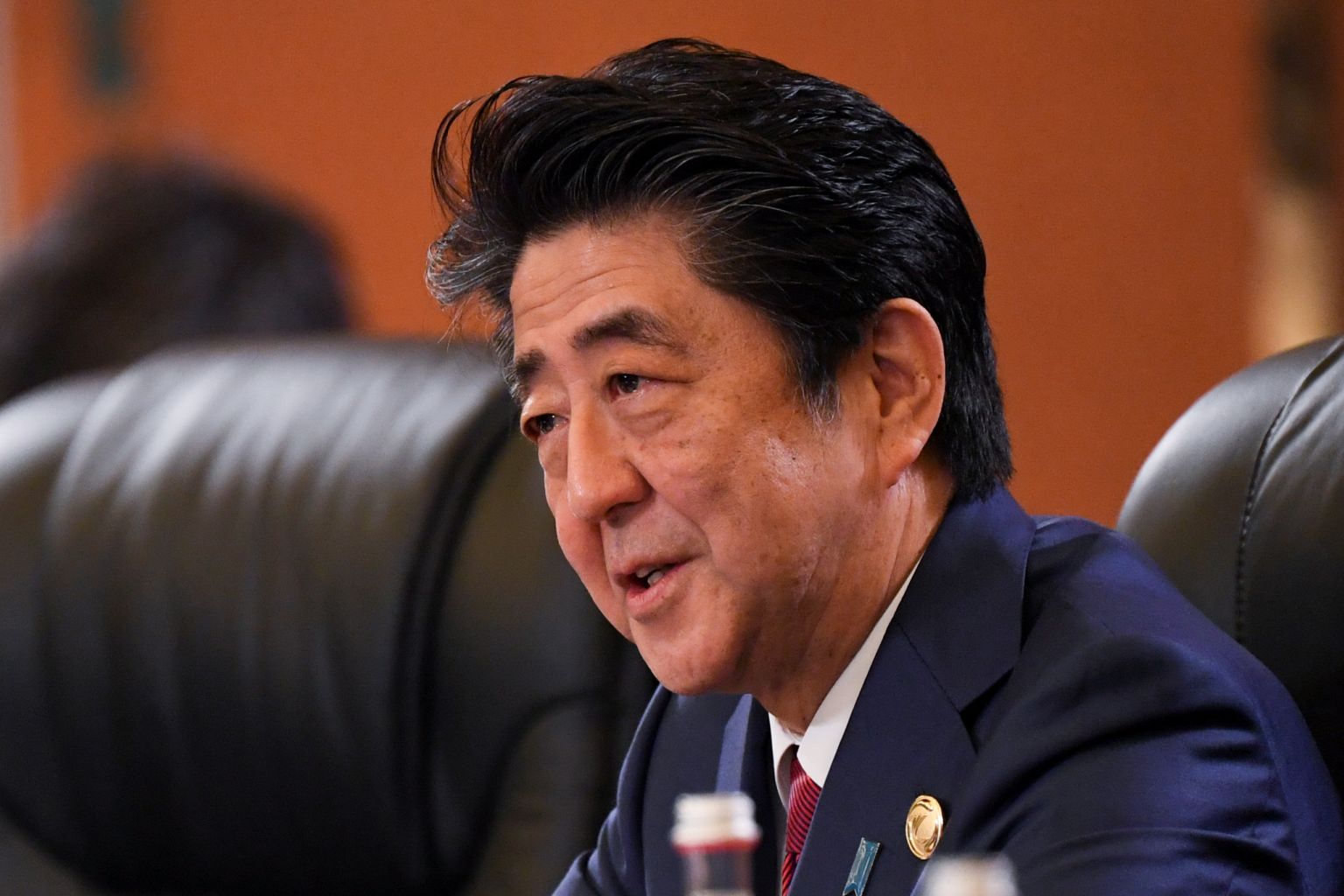PM Shinzo Abe resumes bid to change Japan's Constitution
Success would help burnish his legacy after he became Japan's longest-serving premier
Sign up now: Get insights on Asia's fast-moving developments

Prime Minister Shinzo Abe has raised the issue of amending the pacifist post-war Constitution at almost public speaking opportunity since the new year.
PHOTO: REUTERS
TOKYO • Prime Minister Shinzo Abe faces almost insurmountable obstacles to completing his career-long quest to amend Japan's pacifist Constitution. But that will not stop him from trying.
The Premier opened a new session of Parliament yesterday with a fresh call to revise the country's US-imposed post-war Constitution. Mr Abe has raised the issue at almost every public speaking opportunity since the new year, saying he wants to make full use of what he expects will be his final 20 months in office.
"The Constitution shows what form the country will take," Mr Abe said. "It's our responsibility as lawmakers to put forward a proposal for what kind of country we should aim to be in the future," he added in comments that drew hearty applause from lawmakers of his ruling Liberal Democratic Party (LDP).
Success would help burnish Mr Abe's legacy after he became the country's longest-serving prime minister in November. Rewriting the Constitution was one of the founding principles of the LDP, which argues the move is needed to give Japan's "self-defence" forces greater legitimacy and secure Tokyo's interests around the globe.
While many in the right-leaning LDP view the Constitution imposed in 1947 as a symbol of Japan's humiliation after World War II, the document has broad political support.
Previous talk of amendments, or changing laws to allow Japanese troops to fight abroad, has led to street protests - something Mr Abe may want to avoid as Tokyo prepares to host the Summer Olympics later this year.
Mr Abe's challenge was not made any easier by his failure in July to win a two-thirds majority in Parliament's Upper House, something that would have helped him push through any change. He must also overcome a pushback from within his ruling coalition.
"In terms of political priorities, I don't think public interest is necessarily strong," Mr Natsuo Yamaguchi, who leads Mr Abe's Buddhist-backed coalition party, Komeito, told NHK on Jan 12.
"We have to look at this calmly and realistically as we move ahead."
Although a change would please Japan's sole military ally, the United States, which has been prodding Tokyo to take a more assertive security role, it could complicate Mr Abe's other diplomatic efforts.
The government is preparing for a state visit this spring by President Xi Jinping of China, where suspicion of Japan's military ambitions still runs deep.
South Korea, which has been feuding with Japan over a host of war-related grievances in recent months, has urged its neighbour to "remain within the mould of the pacifist Constitution".
Taking a conciliatory tone towards Seoul in his policy speech yesterday, Mr Abe said South Korea was Japan's "most important neighbour" and that the two shared basic values. The comment comes after South Korean President Moon Jae-in last week proposed that the two countries work together to resolve the issue of wartime forced labourers, and called Japan "our closest neighbour".
It also follows some fence-mending steps in recent months, including Seoul's reversal of its decision to scrap an intelligence-sharing pact with Japan, and Tokyo's partial easing of curbs on the export of high-tech materials to South Korea.
Mr Abe has already outlined his proposed changes - including adding wording to the war-renouncing Article 9 that would make explicit the constitutionality of Japan's Self-Defence Forces.
The country maintains almost 250,000 troops, hundreds of fighter jets and dozens of warships, although their activities are constrained by law.
Japan spends about 5 trillion yen (S$61 billion) annually on defence. It has ramped up its financing each year that Mr Abe has been in office, in an effort to counter the growing capabilities of nuclear-armed neighbours such as China, Russia and North Korea, which has fired missiles over Japan.
Even if Mr Abe were to cobble together the two-thirds majority needed in both Houses of Parliament to pass a change, he would still need to win a national referendum. Some surveys have shown a growing voter willingness to debate the issue, but there is no clear public consensus for a revision.
BLOOMBERG, REUTERS


